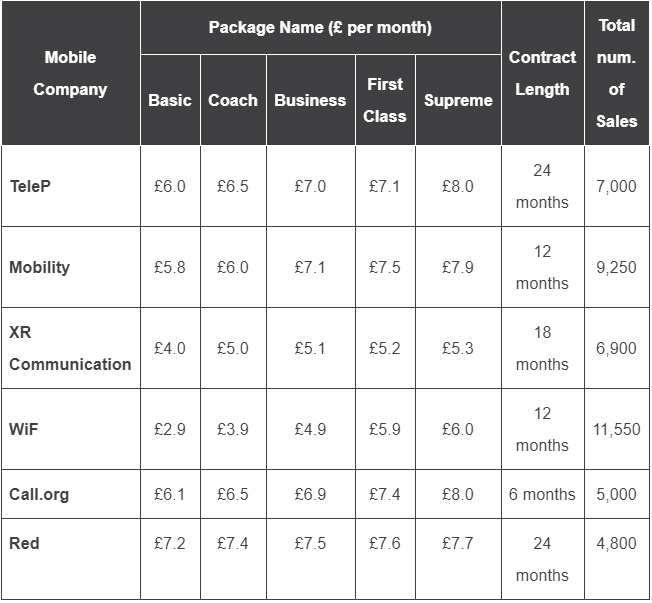Talent Q Tests in 2026
All products and services featured are independently selected by WikiJob. When you register or purchase through links on this page, we may earn a commission.
- What Are the Talent Q Test Categories?
empty
empty
empty
- How Is Talent Q Different from Other Psychometric Tests?
- Who Uses Talent Q Tests in 2026?
- Types of Talent Q Tests
empty
empty
empty
empty
empty
- Talent Q Verbal Practice Test
- How Talent Q Tests Work
- Talent Q Numerial Practice Test (2026)
- How to Practice Talent Q Tests in 2026
- Talent Q Test Tips for Success
- Tips for Passing the Talent Q Test
- Frequently Asked Questions
- Final Thoughts
Talent Q covers a range of psychometric tests used by companies to assess personality, competency, ability and motivation during the recruitment process and for colleague development.
The tests were established in 2006 by a small team led by Roger Holdsworth, one of the world’s leading authorities on objective assessment and a co-founder of the testing company SHL. The team aimed to develop a new approach to psychometric testing.
In 2014, Talent Q was acquired by the Hay Group, an international management consulting organisation. Today, the tests are administered by Korn Ferry, part of the Hay Group.
What Are the Talent Q Test Categories?
Talent Q, a popular psychometric assessment provider, offers a range of tests that assess different aspects of cognitive abilities and behavioral traits.
The Talent Q tests are typically categorized into three main areas:
Numerical Ability
This category measures your numerical reasoning and problem-solving skills.
It assesses your ability to understand and analyze numerical data, perform calculations, interpret graphs and charts and draw logical conclusions based on numerical information.
Numerical ability tests often involve tasks related to arithmetic, percentages, ratios, data interpretation and financial analysis.
Verbal Ability
This category evaluates your verbal reasoning and comprehension skills.
It assesses your ability to understand and analyze written information, draw inferences and make logical deductions.
Verbal ability tests typically include tasks such as reading passages or statements and answering questions based on the information provided.
These tests assess your vocabulary, grammar, critical thinking and verbal reasoning abilities.
Logical Ability
This category assesses your logical reasoning and problem-solving skills.
It evaluates your ability to identify patterns, analyze relationships, make deductions and solve complex problems.
Logical ability tests often include tasks such as completing series of shapes or patterns, identifying the next shape in a sequence or determining the missing element in a set.
These tests measure your logical thinking, analytical skills, and ability to apply logical rules and principles.
How Is Talent Q Different from Other Psychometric Tests?
Traditionally, aptitude tests served very different purposes, with different tests used for recruitment, development, team-building and identifying potential.
Talent Q set out to provide flexible psychometric assessments where a single test could be used for a wide range of different applications (eg verbal and numerical proficiency, logical ability, as well as personality assessments). A candidate could be assessed once and then different reports generated when they were needed.
Talent Q tests differ from traditional psychometric tests in several ways:
-
As mentioned above, Talent Q tests are blended assessments. This means that the same test can be used to analyse a candidate in many different ways. This reduces the time the candidate spends taking tests and saves the company money.
-
Talent Q tests are ‘adaptive’ to the candidate's ability level. A candidate's response to a question will determine the level of difficulty that they will face in the next set of questions. If a candidate gets a question wrong, an easier one follows; if they get it right, a harder one follows. This is known as computer adaptive testing (CAT) and allows the test to quickly determine the candidate's maximum performance level, reducing the time required for testing and improving test accuracy.
-
Talent Q tests are thought to be much more challenging than other psychometric tests. For example, significant amounts of irrelevant data are included within a question, to make it harder for the candidate to find the correct answer. They also often have a larger number of potential answers, making it harder to guess.
-
The Talent Q ability tests are designed to thoroughly test a candidate's ability to answer questions quickly and under pressure. The company acknowledges that, given sufficient time, most people could find the correct answer; hence the particularly tight timeframe.

How should you prepare for a Talent Q test? Watch this video from TestHQ for some expert advice.
Talent Q Practice Test with TestHQ
Who Uses Talent Q Tests in 2026?
Talent Q tests are becoming increasingly well used. Organisations that use Talent Q tests include:
- RBS
- Virgin Atlantic
- Royal Mail Group
- Lloyds Banking Group
- Ford
- B&Q
- Citi
- AstraZeneca
Types of Talent Q Tests
The innovative way that Talent Q tests are designed means that they offer a small number of very flexible tests, as detailed below.
Dimensions
Dimensions is a flexible personality questionnaire that considers an individual’s preferences within the workplace, their style of relationship management, how they approach tasks, and what they find energising and motivating.
Ultimately, it is an indicator of how an individual will perform at work.
The test will present a series of statements that the candidate will rank from ‘Completely untrue’ to ‘Very true’.
These personality dimensions are then used to generate a range of reports including:
- A trait profile
- A behavioural type at work report – How an individual prefers to work
- A team profile – Exploring how an individual is likely to work within a team
- A sales profile – How comfortable an individual is with each element of the sales process
- A role match profile – How well an individual’s dimensions report matches the requirements of a particular role
- A derailment report – The personality characteristics that may cause an individual to come off track in times of pressure or stress
- A potential report – The individual’s likely strengths and development areas in relation to leadership potential

Practice Talent Q Test with TestHQ
Motivations
This is a questionnaire that explores an individual’s motivations, values and drivers at work.
This can then be used to coach individuals on what sorts of roles/tasks might fit with them, or help leaders understand how to engage and motivate their teams.
The questionnaire provides a series of statements that relate to motivation and the candidate must rate them from ‘Not important’ to ‘Extremely important’.
Elements
The Elements ability tests are designed for graduate, professional, managerial and executive-level recruitment. They assess verbal, numerical and logical reasoning, among other skills.
During the Elements test, you might be asked to review and analyse passages of text, data, and shapes or symbols. The checking test looks at how quickly you can spot errors in data.
Try an Elements practice test on the Korn Ferry website.
Aspects
-
Aspects Ability – These are designed for volume recruitment for frontline, customer service and sales roles. They assess verbal, numerical and checking skills.
-
Aspects Styles – This is a questionnaire that assesses behavioural preferences at work, and compares these to the competency requirements of a particular role. It is used in volume recruitment to help quickly reject candidates that do not hold certain key competencies.
Try an Aspects practice test on the Korn Ferry website.
Situational Judgement
This situational judgement test is designed for volume recruitment. It helps identify how an individual will respond in particular situations and compares this to the requirements of a particular role.
The Talent Q situational judgement test will present the candidate with some work-based scenarios and a number of potential actions, and will ask them to decide which will be the most effective.
If you need to prepare for a number of different employment tests and want to outsmart the competition, choose a Premium Membership from TestHQ.
You will get access to three PrepPacks of your choice, from a database that covers all the major test providers and employers and tailored profession packs.
Please choose the correct answer
Labour Crisis
A prolonged labour market recession is in the making as long-term unemployment is on the rise and many workers are becoming excluded from the labour market. The shift to austerity measures has further deteriorated labour market conditions in countries hit by the debt crisis. The depressed employment situation has been accompanied by growing job precariousness for those who have a job. The incidence of part-time work has risen significantly as has that of temporary employment.
Given the significant slowdown in economic growth, job loss can increase severely as businesses tend to decrease expenditure, leading to higher unemployment. At the same time, the crisis has resulted in the contraction of bank credit for small and medium-sized businesses and this, in turn, has reduced the growth in self-employment.
Measures that will increase employment and speed up economic growth should be taken promptly. Given the impossibility of financing expenditures with deficits, one can realistically suggest budget-neutral increases in training programmes and subsidies to businesses. This must be coupled with government programmes to facilitate credit to small- and medium- sized businesses, financed with increases in taxes in other areas such as environmental or tourist taxes that will not distort the economy adversely.
Adapted from europa.eu
Which one of the following is NOT given as a cause of the labour market recession?
How Talent Q Tests Work
If you have been asked to take a Talent Q test, you will normally be sent a link from the company you have applied to, and will be required to log in to the Talent Q assessment system to take the test.
You can take the personality questionnaires on a tablet or mobile device. The Aspects and Elements tests are best taken on a laptop, as the question types are more complex.
For numerical tests, you will need a calculator and a pen and paper to hand.
Only the ability tests are timed; they take between 5 and 15 minutes to complete. Each question will be individually timed.
These time limits are set to be challenging. They are testing your ability to find the answer quickly and in a pressurised environment.
The personality tests are not timed; they typically take between 8 and 25 minutes to complete.
If you feel that you need extra time or other adjustments due to a disability or other special requirements, get in touch with the recruiter, as various adjustments can be made to the test.
After the test, the results will be sent to the recruitment contact at the company you are applying to. They will then contact you with your results and next steps.
The ability tests are scored either via a ‘benchmark score’ that is set by the company you are applying to, or by a percentile score calculated by comparing your performance to a test group of people who have previously taken the test.
There is no official ‘pass’ or ‘fail’ score.
Psychometric tests are normally assessed via a report on the personality traits you display.

Talent Q Numerial Practice Test (2026)
This is a numerical series. Find the next item.
Monthly cost of mobile packages

Sales are distributed evenly across 5 different packages
Which company has the highest monthly turnover?
How to Practice Talent Q Tests in 2026
As with all psychometric tests, to perform at your best you may find it useful to familiarise yourself with the types of questions used, the timings involved, and the general look and feel of the material.
Developing skills such as general and verbal reasoning, logic and maths will help you succeed in these tests.
Remember, Talent Q tests can look quite different from other psychometric tests so it is worth taking the time to sit some practice tests, such as those offered by TestHQ.
Take a Talent Q Test with TestHQ
Talent Q Test Tips for Success
-
When taking personality tests, remember to be yourself. Never try and second-guess what you think the right answer should be; there are no right answers. The test is designed to find out more about you, your approach to different work scenarios and your preferences.
-
The Talent Q tests are usually taken online, either at home or at an assessment centre. Make sure you have a quiet place where you will not be disturbed for the duration of the test, and that your internet connection is reliable. All tests should be taken in one sitting, but if you lose internet connection, you will be able to log back in to that point in the test.
-
Take the practice questions that are offered at the start of the test. It will help you to familiarise yourself with the test system and format of the questions.
-
Work quickly but accurately. The Talent Q ability tests measure your speed, but don’t rush. Read the question properly and spend a few moments checking you have chosen the correct answer. Each question will be timed individually. so you will be able to see the time left for each one as you’re working.
Tips for Passing the Talent Q Test
Here are some tips to help you succeed:
-
Familiarize Yourself with the Test Format: Understand the structure, timing and question types of the Talent Q test you will be taking. Review sample questions or practice tests to become familiar with the format and style of the questions.
-
Practice Under Timed Conditions: Time management is crucial in Talent Q tests. Practice answering questions within the allocated time for each section to improve your speed and accuracy. Use a timer during your practice sessions to simulate the test environment.
-
Review Relevant Content: Identify the specific areas of assessment (numerical, verbal, logical) and review the relevant content and concepts. Brush up on numerical reasoning, verbal comprehension, logical reasoning and other cognitive abilities that are relevant to the test you will be taking.
-
Understand Instructions: Read the instructions carefully before attempting each question. Pay attention to any specific requirements, such as using only the information given or selecting the most appropriate response.
-
Apply Strategic Approaches: Develop strategies for each question type. For numerical reasoning, practice techniques such as identifying key information, using estimation and understanding common calculation methods. For verbal reasoning, focus on active reading, identifying key details and using logical deduction. For logical reasoning, practice identifying patterns, making logical connections and using process of elimination.
-
Practice Critical Thinking: Talent Q tests often require critical thinking skills. Practice analyzing and evaluating information, making logical inferences and drawing conclusions based on the given data or scenario.
-
Manage Test Anxiety: Test anxiety can hinder performance. Use relaxation techniques, such as deep breathing or visualization, to manage stress and maintain focus during the test. Stay positive and confident in your abilities.
-
Seek Feedback and Learn from Mistakes: Review your practice test results and identify areas where you struggled. Understand the correct solutions and learn from your mistakes. Seek feedback from practice tests or assessments to identify areas for improvement.
-
Take Practice Tests: Utilize practice materials or sample tests specifically designed for Talent Q assessments. These will help you become familiar with the test structure refine your skills, and build confidence.
The Talent Q tests are a group of psychometric tests that are used for recruitment procedures and workplace development. They examine an individual’s personality, competency, ability and reasons for motivation.
Unlike other psychometric tests, the Talent Q is a blend of assessments that analyse multiple facets of an individual. Because of this, they are considered to be more challenging than if you were sitting a singular aptitude test.
Unlike other psychometric tests, the Talent Q tests are adaptive, meaning the questions will change depending on the ability of the individual taking the test. More correct answers will result in more challenging questions, and so the difficulty level is determined by your success. In this sense, the Talent Q test always maintains a level of difficulty that is suited to your level.
The Talent Q tests are different from other aptitude tests because of their adaptive nature, so you must prepare by taking Talent Q mock examinations. You can find these via Korn Ferry and Practice Aptitude Tests.
The Talent Q test is a combination of different types of aptitude tests.
Each test examines different abilities in an individual. The verbal test measures an individual’s comprehension and consists of 15 questions.
The logical test examines an individual’s ability to come to logical conclusions.
There are 12 questions in this section. Finally, the numerical test measures an individual’s mathematical abilities. Those sitting this section will have 12 questions to answer.
Talent Q has become a popular choice for corporate companies that are looking for well-rounded candidates. Organisations that use the Talent Q test include RBS, Ford, Virgin Atlantic and Royal Mail Group. There are not too many questions to answer, but it is well structured and gives a company insight into multiple psychometric areas.
Because of the adaptive nature of the Talent Q test, you will likely take the test online. It is difficult to administer the adaptive algorithm in person, so it is much better suited to the use of AI. It was also adapted in 2006, making it one of the more modern forms of psychometric tests.
The Talent Q test has become a popular choice for corporations to use in their recruitment procedures, and so it is relatively easy to find sample questions.
How long you must wait for the results will depend on the recruitment practice of the company. Because this is an online test, the results are calculated very quickly. However, the results are based upon your percentile score, meaning all results must be calibrated before a company can best understand how you have performed. The best way to calculate how long you must wait for the results is to look at the time window of the application process. You will likely obtain your results after the application window.
The Talent Q test is scored on the comparison of your results with every other candidate. The passing score will be based on the percentile you fall into. If you want to be assured of passing, then it is likely you must achieve a score within the 80th percentile, meaning your score falls within the top 20% of results. Your score is calculated by the grades you receive in the three areas of verbal, numerical, and logical.
The grades are separated into five tiers, with the best tier being A, well above average, and the worst tier being E, well below average. It is worth bearing in mind that if you are taking a dimensions Talent Q test, you are being examined on your personality. Because of this, the results you achieve are calculated differently. Companies that use this form of Talent Q test want to assess your ambitions and how you will fit in within the workplace culture.
The Talent Q test has become a popular option for corporations wanting to find candidates who have a balanced skill set. To understand what is expected of you on the Talent Q test, the best resource available is Korn Ferry. It is worth stating that the Talent Q test is a form of an SHL test, another set of psychometric examinations. Researching into the SHL examinations will begin to give you an idea of what is expected of you on the Talent Q tests.
This depends on the recruitment procedures of a company. There may be only a seasonal intake of candidates, meaning you cannot retake the Talent Q test until the next application window opens. To find out if you can retake the Talent IQ test, contact the HR department or the customer service team of the company you are applying for.
If you are successful on your Talent Q test, then it is very likely you will be moved on to the next stage of the application process. This may mean attending an interview or a day at an assessment center. If you have failed the Talent Q test, you may be able to obtain your results to examine where you went wrong. This is a key step in succeeding in any future applications.
Final Thoughts
If you have been asked to take a Talent Q ability or personality test as part of the recruitment process for a new job or while at work, don’t panic. Thorough preparation and practice will help you succeed.
Personality questions aren’t designed to trip you up, so answer them thoughtfully and honestly. Talent Q’s ability tests might require some practice, but they are designed to be responsive to your level of ability.






